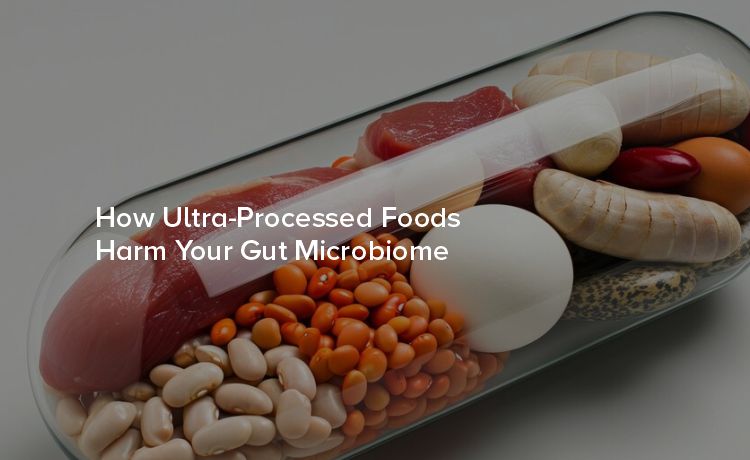
Ever wondered why packaged snacks and convenience meals often leave you feeling sluggish, bloated, or even out of sorts? The answer may lie in an unseen but critical part of your body: your gut microbiome. This diverse community of trillions of microbes plays a vital role in digestion, immunity, and overall health. However, the modern diet, prominently featuring ultra-processed foods (UPFs), is wreaking havoc on this delicate ecosystem.
Ultra-processed foods are formulations of predominantly industrial ingredients and additives. Unlike whole or minimally processed foods, these are heavily modified through chemical processes, often stripped of their natural nutrients, and combined with substances like preservatives, artificial flavours, added fats, and sugars. Think chips, instant noodles, soft drinks, and store-bought cakes.
Common Examples of Ultra-Processed Foods
While these foods offer convenience, their low nutritional value and harmful additives pose significant risks to your gut health.
Our gut microbiome consists of trillions of bacteria, fungi, and other microbes that coexist in our digestive tract. It plays a pivotal role in maintaining several essential bodily functions, notably digestion, immunity, mood regulation, and even metabolism.
A balanced microbiome fosters the growth of 'good' bacteria while keeping 'bad' ones in check. However, when this balance is disrupted, it can lead to a condition called "dysbiosis," causing inflammation, poor digestion, and even chronic illnesses.
Knowing the essential role your gut microbiome plays, it’s crucial to understand how your dietary choices, especially ultra-processed foods, can jeopardise its health.
Ultra-processed foods often pack excessive sugar and artificial sweeteners like aspartame and sucralose. While these make foods more appealing, they can fuel the growth of harmful bacteria in your gut.
For instance, studies show that artificial sweeteners like saccharin can alter gut bacteria profiles, impairing glucose tolerance and leading to increased risks of diabetes. Excessive sugar, similarly, disrupts bacterial balance and inflames the gut lining, potentially causing leaky gut syndrome.
Whole foods like fruits, vegetables, and legumes are rich in dietary fibre, which feeds the 'good' bacteria in your gut. Ultra-processed foods, however, are typically devoid of this essential nutrient. Without sufficient fibre, beneficial gut bacteria starve, leading to a reduction in their diversity and abundance.
This lack of microbial diversity is linked to a weakened immune system, difficulty managing weight, and increased susceptibility to illnesses.
Preservatives like emulsifiers and artificial additives, common in ultra-processed foods, directly alter your gut microbiota. Research suggests that some emulsifiers can erode the mucus layer protecting your gut lining, making it more prone to inflammation.
For example, a study published in Nature highlighted that commonly used emulsifiers like carboxymethylcellulose can cause intestinal inflammation and promote the growth of pathogenic bacteria.
Ultra-processed foods often contain trans fats and highly refined vegetable oils, which are detrimental to gut health. These fats can reduce microbial diversity and shift the microbiome toward a state of dysbiosis.
Research also links trans fats to inflammation in the gut and increased intestinal permeability, both of which have been associated with chronic conditions like Crohn's disease and irritable bowel syndrome.
Your gut and brain communicate through the gut-brain axis, a complex signalling system involving your microbiome. A diet dominated by ultra-processed foods can negatively impact this connection, leading to mood disturbances, heightened stress, and even depression.
For example, studies show that a poor gut microbiome resulting from excessive junk food consumption correlates with reduced serotonin production, often dubbed the "happy hormone."
Here are some indicators that your gut microbiome could be suffering due to a diet rich in ultra-processed foods:
If these symptoms sound familiar, a closer look at your dietary intake may be necessary.
Trade packaged snacks for nutrient-dense whole foods like fruits, vegetables, nuts, seeds, and whole grains. These provide essential vitamins and dietary fibre to fuel your gut microbes.
Fermented foods like yoghurt, kefir, kimchi, and sauerkraut naturally contain probiotics that replenish your gut microbiota. Aim for a serving daily to aid digestion and rebalance your microbiome.
We get it, eliminating ultra-processed foods overnight isn’t easy. Start small by replacing one ultra-processed snack with a healthier alternative each week. Small, consistent changes lead to sustainable habits.
Drinking water aids digestion and keeps the gut environment stable. Avoid sugary drinks; they contribute to dysbiosis and inflammation.
Prebiotics fuel the growth of good bacteria. Foods like garlic, onions, bananas, and asparagus naturally contain prebiotics, or you can consider supplements if needed.
A professional nutritionist or gut health expert can create a personalised plan to rebalance your microbiome based on your specific needs.
Your gut microbiome is essential to your overall health, but ultra-processed foods increasingly threaten this delicate ecosystem. By minimising your consumption of UPFs and focusing on whole, nutrient-rich foods, you can rebuild and protect your gut for years to come.